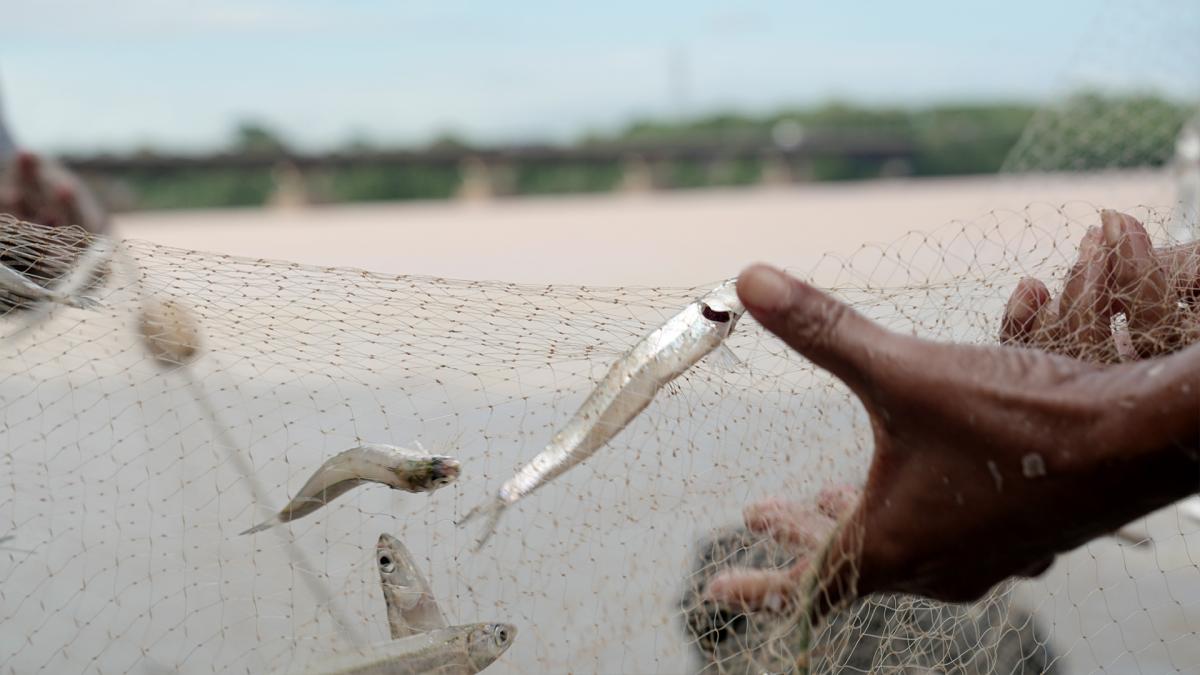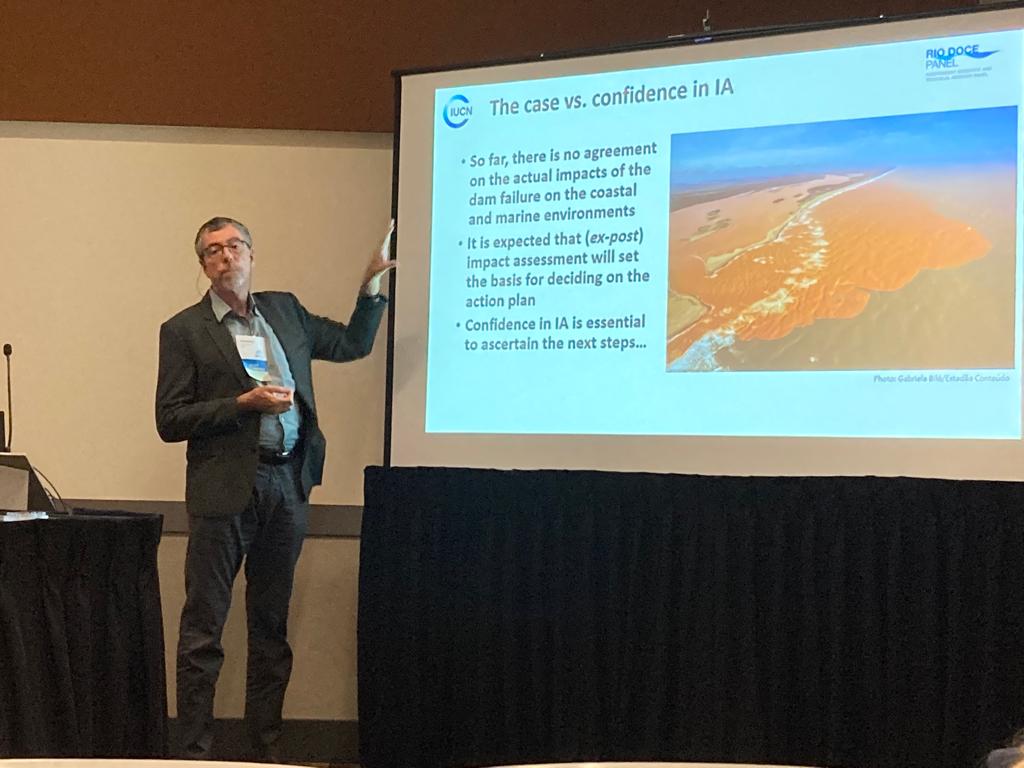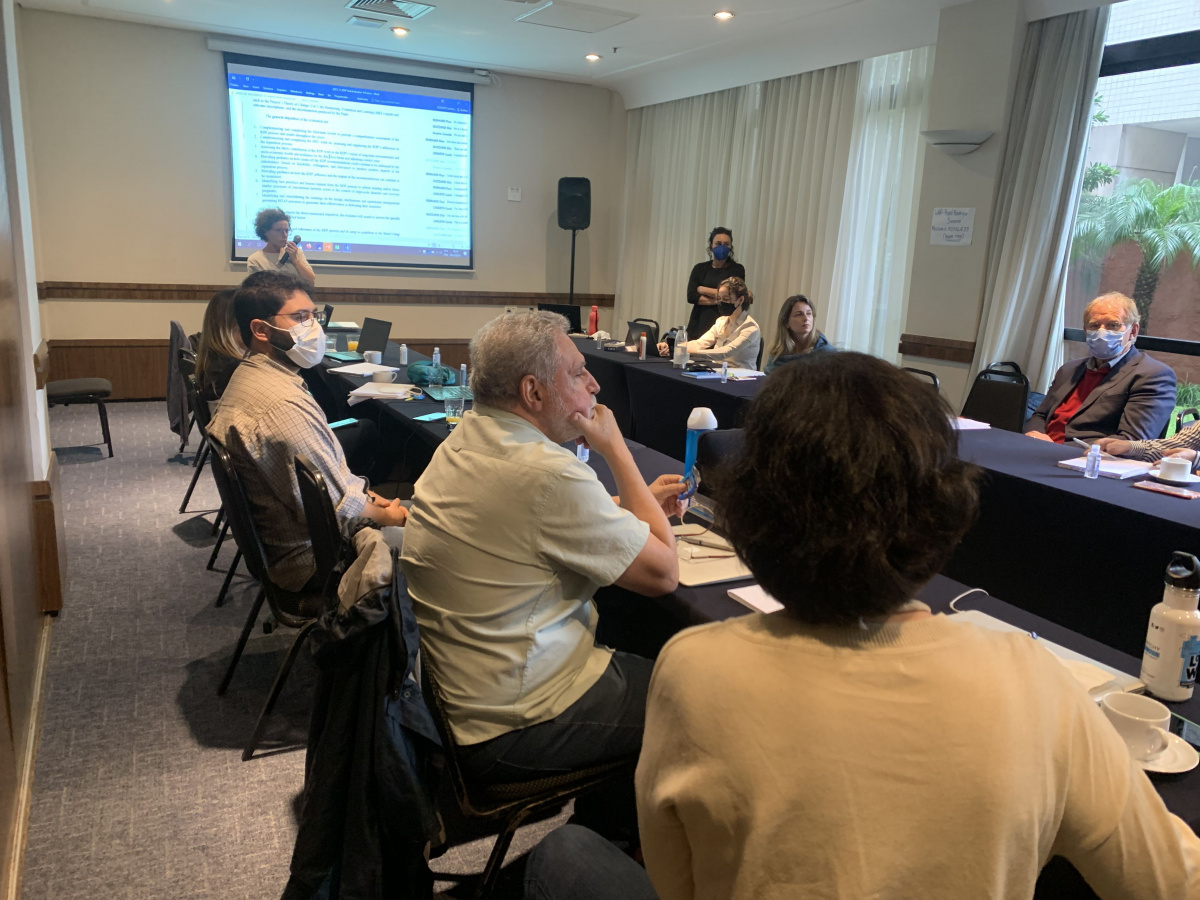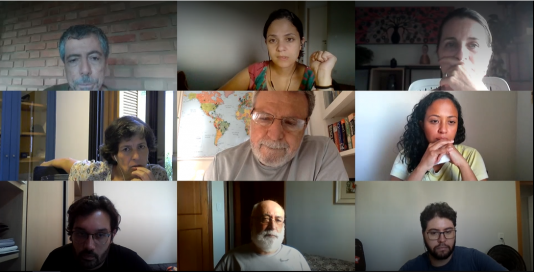New recommendations issued by IUCN's Rio Doce Panel call for a more unified approach to help lift the region’s fishing ban
Belo Horizonte, MG, Brazil, 12 June 2019 (IUCN) – New recommendations aimed at supporting the decision-making process regarding the three-year Rio Doce fishing ban and enhancing fishery recovery efforts in the basin and adjacent coastal zone were released today by the IUCN-led independent panel of experts.

Fishing in the Rio Doce - 2019
Photo: © IUCN/ Jorge Pennington
The recommendations are highlighted in a new report entitled The fishing ban after the Fundão Dam failure: using the precautionary principle to restore fisheries in the Rio Doce Basin, which analyses the situation experienced by fishers after the measures put in place by Public Prosecutors (Federal and from the state of Minas Gerais) to ban fishing activities following the Fundão dam failure.
Recommendations by the Rio Doce Panel call upon the Renova Foundation to work closely with the Interfederative Committee (CIF) to devise a unified decision-making framework and schedule that would enable the lifting of the fishing ban. The recommendation emphasises the importance to engage women and men fishers as an integral part of the monitoring network, and points out the need to keep communications flowing among communities, government authorities, researchers and the media about the results of the assessments on freshwater biodiversity and fish toxicity.
The report by the Rio Doce Panel explains the ban was introduced under the precautionary principle approach in the wake of the disaster, meaning that the measures taken by federal and local authorities were necessary to avoid potential public health problems as well as protect the aquatic biodiversity. Since then, however, the ban has created new challenges for local communities and raised the need for economic alternatives and medium and long-term solutions beyond financial aid to the families.
"The precautionary principle that has guided the decision-making process is a good practice. However, while it is in place, an integrated assessment should be developed in conjunction with restoration objectives to build a sustainable fisheries framework. This will ensure the protection of the aquatic biodiversity in the region’s freshwater bodies and coastal area and foster the participation of those involved in the local fishing industry,” says Maria Cecília Wey de Brito, lead-author of the study.
Fishing is an important economic activity for Rio Doce communities; countless families rely on the river and its tributaries for subsistence. According to the Renova Foundation, by the end of 2018, 11,002 families in the state of Minas Gerais and 10,862 families in the state of Espírito Santo had been affected by the fishing ban; today, those families depend on compensation and alternative activities to survive.
Yolanda Kakabadse, Rio Doce Panel Chair, emphasised the importance of the decision-making process to the restoration efforts in the Basin. “In this complex governance model, it is important to make sure that those involved can coordinate how the linkages between social, environmental and economic interests are being integrated and aligned in the decision-making process, which is intentionally focused on the needs of the most affected population.”
The Renova Foundation, government institutions, and universities conducted a significant number of studies to measure water and aquatic biota contamination, generating large amounts of data that can be used to support wider-reaching analyses with a view to creating a sustainable fishing framework and adding value to fisheries production in the basin.
Camila Camilo, leader of the Renova Foundation's Resumption of Aquaculture and Fishing Activities, points out that the formatting and contracting of two study packages is underway. One of them refers to the socioeconomic characterization and fishing statistics, whose objective is to present the current reality from the economic point of view of the activity, in addition to highlighting the effort and the capacity to support the environments. "The other, on the other hand, comes with the diagnosis of the productive chain of fishing, in order to trace the scenarios for the creation of alternatives or the expansion of income for families.
The Rio Doce Panel comprises international and national experts, who bring diverse technical skills, academic qualifications and local knowledge to the table. Among them, the Panel Chair, Ms. Yolanda Kakabadse, is the former Minister of Environment of Ecuador and a former President of IUCN. The lead author is Maria Cecília Wey de Brito, MSc, a Brazilian specialist in biodiversity with more than 30 years of experience on socio-environmental issues. Currently with the EKOS Brasil Institute, she has worked on biodiversity issues with both governmental and nongovernmental organisations.



